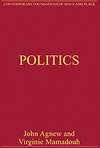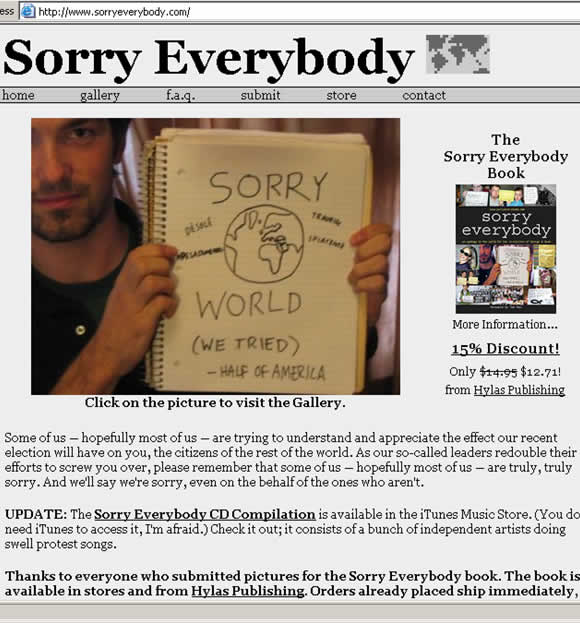Introducing Virginie Mamadouh
 Virginie Mamadouh is Associate Professor in Political and Cultural Geography at the University of Amsterdam. Ms Mamadouh is further involved with a number of journals such as Geopolitics and Political Geography.
Virginie Mamadouh is Associate Professor in Political and Cultural Geography at the University of Amsterdam. Ms Mamadouh is further involved with a number of journals such as Geopolitics and Political Geography.
Her research interests include geopolitics and globalisation; transnationalism and ‘new media’; (transnational) migration and territorial identities; electoral geography and urban social movements.
Ms Mamadouh co-edited “Politics – Critical Essays in Human Geography” with John Agnew, published in 2008.
Geopolitical Passport
Your relationship with geopolitics
At what age did you discover geopolitics and what attracted you to it?
I found Lacoste’s book “La géographie ca sert d’abord à faire la guerre” by accident on the bookshelves of the library and started reading the journal Hérodote regularly. My interest for international politics and peace and war issues was further boosted by the political geography classes I took with Herman van der Wusten, who was then the Professor of Political Geography at the University of Amsterdam.
Which geopolitical topics do you focus on and why have you chosen especially these?
I am interested in geopolitical representations and geographical imaginations, in other words in the justification of interactions with far away places. Three main topics are recurrent in my work.
The first is European integration and its consequences for territorial identities and geopolitical visions: I look at new geopolitical actors such as the European Union and subnational entity.
The second is situated at the intersection of geopolitics and media studies, especially the so-called new media like the Internet, exploring how people engage with new media to articulate new geopolitical imaginations (largely territorially unbounded ones); it is related to issues of collective action and transnational migration.
The third is the metastudy of geopolitics: how geographers engage with geopolitical traditions and geopolitical issues. I am particularly interested in authors operating at the margins of geopolitics.
What do you consider your most important contribution to geopolitics?
The next one of course!
Otherwise, my 1998 review article of the geopolitical literature is probably the most read. The typology I offered there to grasp the diversity of approaches in these expanding field turned out to be a useful tool for students.
My geopolitical preferences
What is your favourite definition of geopolitics?
There is no definition that would do justice to the diversity of the approaches geopolitics covers and there is no need for a single definition. That is part of the fun. I am interested in how geopolitics is deployed in rhetorical practices and embedded in social relations.
Which geopolitical scientist do you admire the most?
I pass for this one. I am not good in admiring people. A great publication or a great lecture does not make of someone a great person.
What is your favourite geopolitical book?
I could not pick a simple book. So many great books have been fascinating readings. I liked the experience of reading the classics (Ratzel, Mackinder, Bowman, Brunhes, Vallaux).
Must reads are of course:
- Simon Dalby’s Creating Second Cold War (1990)
- David Campbell’s Writing Security (1992)
- John Agnew and Stuart Corbridge’s Mastering Space (1995)
- Gerald Toal’s Critical Geopolitics (1996)
- Gertjan Dijkink’s National identity and geopolitical visions (1996)
- Anssi Paasi’s Territories, Boundaries and Consciousness (1996)
I also recommend Stephen Graham’s Cities, War and Terrorism (2004) and, especially for those interested in the role of the media, Joanne Sharp’s Condensing the Cold War, Reader’s Digest and American Identity (2000) and Paul Adams’ Atlantic reverberations: French representations of an American presidential election (2007).
Do absolutely read Cynthia Enloe’s work, for example Maneuvers; The international politics of militarizing women’s lives (2000) and Derek Gregory’s Colonial Present (2004).
Last but not least get your copy of Michel Lussault’s De la lutte des classes à la lutte des places (2009). It is a short text, simply but convincingly explaining how humans are spatial beings in the first place, and how struggles are primarily about making place (no need to quarrel about whether economics, culture or politics come first…it is all about getting the best place under the sun).
What is your favourite geopolitical website?
May I suggest a non-academic website that try to disrupt established geopolitical imaginations. For example the Iraq Body Count website that aims at documented the death of civilians in the Iraq war or a webblog like Critical Spatial Practice
Further I would recommend websites that provide great maps and insights about ongoing conflicts like
Unfortunately most of the websites of the relevant academic journals Geopolitics, Political Geography are only open to subscribers but some are public like
The geopolitical future
In what direction(s) will geopolitical science be heading the coming decades?
There is no such thing as geopolitical science. However, there are many directions for research.
In the field of critical geopolitics a timely forum has just been published in GeoJournal, Jones, L., and D. Sage 2009 (doi: 10.1007/s10708-008-9255-4): New directions in critical geopolitics: an introduction Geojournal
Which geopolitical subject has been too little in the spotlight and needs further research?
Communication geopolitics!
There is a large consensus to acknowledge the importance of perceptions and representations but not much work on the working of the (new) media in these communication practices. Web 2 technologies, Google, GIS, GPS… Learning from communication geography would help strengthen our analysis of these geopolitical practices.
Besides, feminist geopolitics is emerging as an important subfield.
What will be the largest geopolitical challenge for the world in the 21st century?
Justice remains the largest geopolitical challenge (as ever before) and any kind of inclusion and exclusion mechanisms, and bordering process. Justice at every scale, so also global justice. In these struggles for more justice, environmental issues remain key (resources, climate change, food); neoliberalism and accumulation by dispossession remains central ideologies; and identity politics keep providing powerful argumentations.
New ethical issues will appear with the development and the use of new technologies. I am especially worried about surveillance issues and the role of geoinformational technology for surveillance purposes.
Encore
Below you see a snapshot of a weblog of American citizens wanting to communicate their disappointment with the re-election of George W. Bush in 2004 to the rest of the world:


